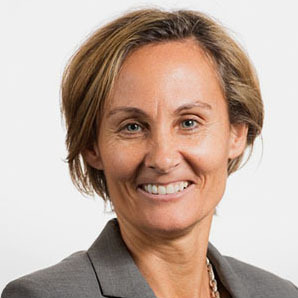The fintech landscape has seen a remarkable evolution over the past decades, marked by technological advancements and regulatory changes. That progress and those obstacles were opportunities for firms like Liquiditybook to automate workflows and establish itself as a dependable partner to a diverse group of market participants. John Lothian News interviewed Terrence Cheung, director of post trade product management, and Shawn Samuel, CTO of Liquiditybook, in this podcast about its history and how it is managing the quickly shifting technological and regulatory landscape.
Terry Cheung, who has been with Liquiditybook for 12 years, is a veteran in the fintech industry with 18 years of experience who sheds light on this journey as he discusses the firm's trajectory and its adaptation to emerging market needs. He is joined in this podcast by Liquiditybook's chief technology officer, Shawn Samuel, who with Cheung addresses the firm's origins, dating back to its inception in 2005.
Liquiditybook started with a small team at a broker-dealer and grew organically as it started to use technology to solve its own problems, Samuel said. The first problem Liquiditybook addressed involved automating straight through processing, from trade conception to order entry, order management, execution to post trade, he said. The idea was to automate anything they could in that process, to eliminate risk and save traders money that could help keep them from going out of business, Samuel said.
They started with a FIX networking and evolved to what they are today, "a full end-to-end system for everything, for all market participants in the front office, from order management to execution management to portfolio management to post trade in (the) middle office," Samuel said.
Another aspect of Liquiditybook's work was replacing legacy systems that were "heavy, slow, hard to work with," he said. Samuel expounded on different examples of how Liquiditybook's newer, more powerful technology allows traders to move faster, while also seeing real-time data powered by APIs.
Liquiditybook offers a managed service to clients, which allows it to configure the system to meet the client's needs, rather than forcing the client to become an expert in the solutions offered by Liquiditybook, Samuel said.
Cheung says that with the move to T+1 all the steps of clearing a trade will be much quicker, with brokers asking clients to send instructions electronically, if possible. Executing brokers will also try to simplify their workflows so they can send out the confirmations as early as possible so they get to the custodian firm to confirm by 9:00 p.m., he said.
Cheung said he expects artificial intelligence (AI) will impact the sell side broker serving the buy side trader, who might send in a basket of 50 stocks, but send them individually. Using AI, the sell side broker can identify other 50 lot trades with the same stocks and be prepared to allocate the trades the same way as the first trade, thus speeding up the workflow, Cheung said.
Also, if a client trades a particular stock the day before, using AI, when the client trades the stock the next day, the firm can project the account the trades will be allocated to, he said.
Cheung laid out the history of settlement of stocks from T+5 to T+1 for the podcast, noting when Europe and Canada made similar moves. On the Monday of Memorial Day, Canada and Mexico will move to T+1 and then Tuesday the U.S. will move to T+1.
The last time there was a move in settlement days, Europe moved first. This time it is the U.S., Canada and Mexico. Cheung said he expects the rest of the world to catch up quickly in the next few years. He said he hopes we can get to T+0 in fewer than 10 years.
Other topics explored in this podcast include:

Flexible by design, OCC moves ahead with an update of its clearing technology even as its employees meet the challenges of working from home...

After capping a series of acquisitions with the purchase of Trade Alert, Cboe's senior vice president and head of information solutions talks about why...

Why has volume significantly increased in the open outcry trading pits at the CME Group in recent months compared to before the pits were...